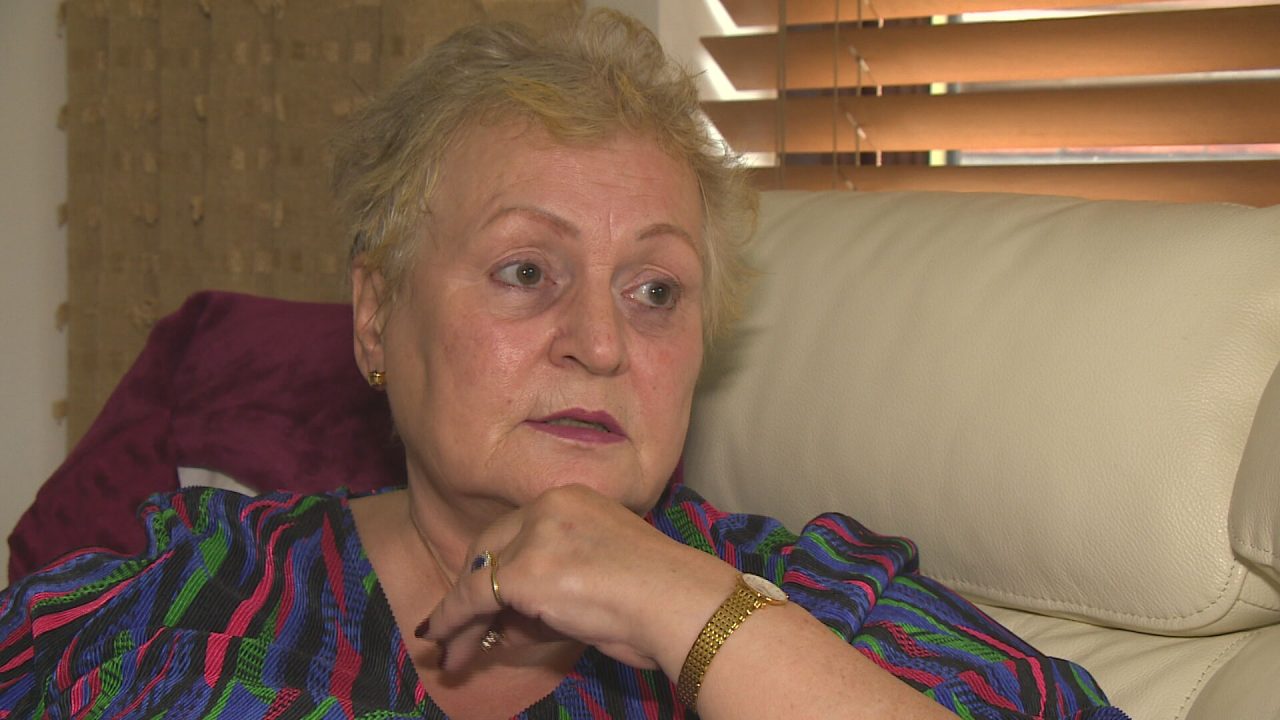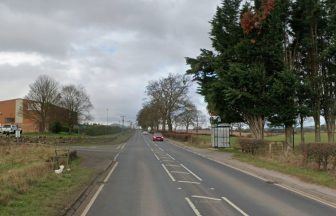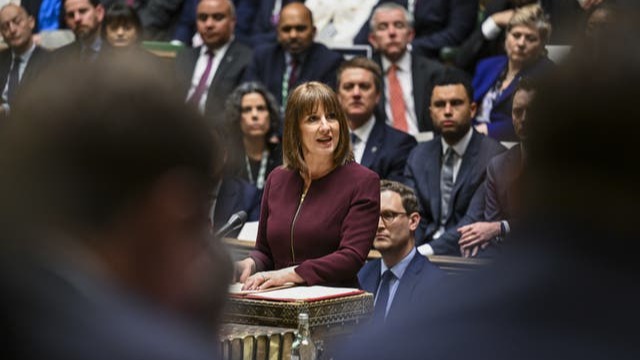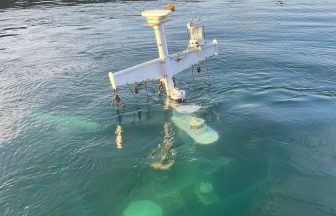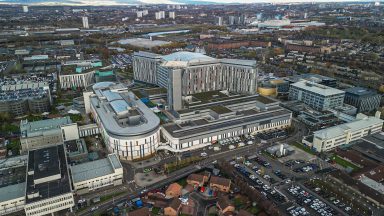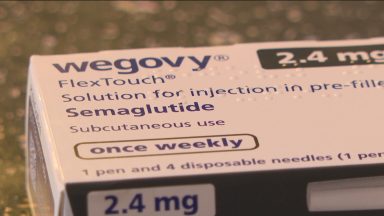A former nurse who pleaded for a breast biopsy four times while undergoing screenings has told how she was diagnosed with incurable cancer.
Jane Durham, 67, was given the devastating news on April 12 last year – her birthday – five years after she first went for her examination.
Weeks after her diagnosis, she was told the cancer was metastatic, meaning it had spread.
The former nurse is urging others to persist in questioning medics and to demand another opinion if they feel their concerns are not being listened to.
She told STV News: “I just knew it wasn’t right.
“When I made my formal complaint I said it was with great sadness after working with the NHS for 40 years that I had found myself in this position.
“Responsibility needs to be taken. Maybe not the first time, but going three times with the same lump, that’s when they should have thought to do a biopsy.
“I’m not an expert. I make the same mistakes as everyone else but I do feel very let down.”
Jane, from Uddingston, went for a mammogram four times in four years and was told each time a lump in her breast was nothing to be worried about and there was no need for a biopsy.
Last April, she found a different lump and has claimed she had to guide a nurse’s hand to help them find it.

This time, further tests were carried out and cancer was found in Jane’s breast, in both her lungs and seven tumours on her spine.
For Jane, life now revolves around managing her pain and four week cycles of targeted chemotherapy.
She has been admitted to hospital three times with pneumonia and once with sepsis due to the gruelling treatment.
She even waited in a “freezing” ambulance bay for 14 hours because her immune system was too low to sit in a packed A&E clinic.
Jane added: “I do everything I can to try and take care now. I am cautious but we need to live and do nice things and we will.”
“There are some days I feel as though I’ve got magnets on my eyelids as I just can’t open them. I’m so tired. Our live revolves around a four week period.”
Jane is highlighting her experience amid calls for more research to speed up diagnosis and improve care for patients living with secondary breast cancer.
“I cant help thinking if they had done further checks in the past, then it might not have been so widespread,” she said. “Every test I then went for last year showed it up somewhere else.
“If this had been biopsied at the beginning, I would probably still have had the type of breast cancer that cannot be cured but perhaps it wouldn’t have had a chance to spread to my lungs and my spine.
“I think the whole way breast cancer is diagnosed needs to be re-evaluated because my mammograms showed nothing, yet I could feel the lump easily.
“If the nurse hadn’t allowed me to help her, they wouldn’t have found it.”
“Throughout my treatment I have been met with care, kindness and compassion but I do also now question the competency of some.”
Jane has urged women to visit the doctor if they notice any changes in their breasts and to trust their instincts.
She said: “Nobody knows your body better than you. If your patient can give you an accurate and informed history listen to them.
“As a former nurse, I can do that. but wee Jeanie down the road might not be able to do that, so I want her taken care of. If they are not happy, if they are still worried, do not let it go.”

NHS Greater Glasgow and Clyde confirmed Jane’s formal complaint has been reviewed.
A statement read: “We are sorry that Mrs Durham is not satisfied with the clinical care she received leading into her diagnosis.
“While we don’t discuss individual patient cases, we can confirm that specialist consultants have investigated, and the conclusion has been shared with Mrs Durham.
“Our team would be happy to speak with Mrs Durham in more detail about this and would encourage her to get in touch to discuss her concerns should she wish to.
“We continue to encourage all women to be Breast Aware so that any changes can be identified as soon as possible, and relevant next steps can be taken, such as visiting their GP who may refer them to a breast clinic for further tests.
“For further information on how to be breast aware, breast cancer and secondary breast cancer, visit NHS Inform or Breast Cancer Now to help detect early signs.”
A new short film made by Breast Cancer aims to show how no two patients experiences of metastatic or secondary breast cancer are the same.
Under the Scottish Government’s new cancer strategy, national data is be collected.
Charities hope it will provide long overdue insights from the numbers of people diagnosed to the treatments they are given.
“Checking your breasts only takes a few minutes and there’s no special technique, it’s as simple as TLC: Touch, Look, Check.
“It’s also crucial that people diagnosed with primary breast cancer are given information about the possibility of their cancer coming back or spreading, and of the signs and symptoms of secondary breast cancer, so they feel confident to spot any new changes.
“Anyone looking for support or information can speak to Breast Cancer Now’s expert nurses via our free, confidential helpline on 0808 800 6000.“
Breast Cancer Now
Baroness Delyth Morgan, chief executive at Breast Cancer Now, said: “Far too often people with incurable secondary breast cancer face unacceptable delays to diagnosis.
“While we estimate that over 61,000 people are living with the disease in the UK, we don’t know what the real number is, or their routes to diagnosis.
“So while we welcome the Scottish Government’s commitment within its Cancer Strategy to improve data collection for secondary breast cancer, they must also deliver an audit using this data, in line with audits now taking place across the rest of the UK, as this vital insight will help us truly understand how to support faster diagnosis for secondary breast cancer.
“The Strategy’s first Cancer Action Plan also offers tangible commitments to help speed up diagnosis of secondary breast cancer, including supporting primary healthcare professionals to identify symptoms and refer people on for further tests by making an educational course from Gateway C available to them.
“We support people to advocate for their health and any concerns they may have and encourage all women to attend breast screening appointments when invited and to regularly check their breasts, reporting any unusual changes to their GP as soon as possible.
The charity Make 2nds Count also works to highlight the impact of secondary breast cancer, which claims 1,000 lives each month in the UK. That’s an average of 31 deaths every day.
A recent survey by the Edinburgh-based charity found many patients and their families struggle to find information and support following their diagnosis and that there was no regular discussion of the side effects of treatment and the immense impact on their quality of life.
Oncologist Dr David Cameron from Make 2nds Count said: “Where I think we have less research is a better understanding into the routes of that diagnosis, because patients come in through a multitude of different systems.
“Some of that is always going to be the case, but we don’t have systematic ways of understanding early in that reoccurrence pattern when to pick them.”
Health minister Michael Matheson said: “A key part of our national cancer strategy is to make sure that we identify these types of cancers much earlier and that is part of the work we are taking forward in the coming years to try to improve survivability and early treatment for patients who do have secondary breast cancer.”
For more information or support on secondary breast cancer visit www.make2ndscount.co.uk.
Follow STV News on WhatsApp
Scan the QR code on your mobile device for all the latest news from around the country


